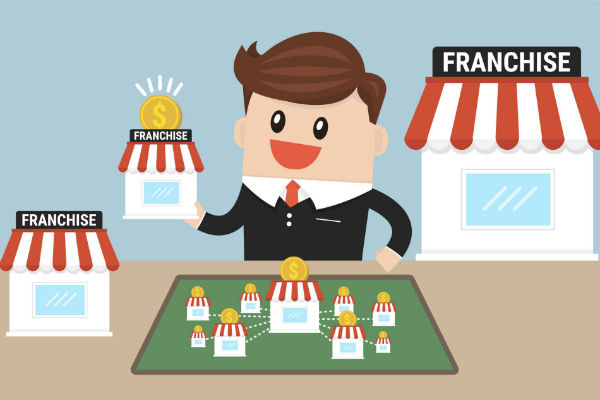One of the most crucial aspects of owning a franchise is ensuring that franchise lives up to the corporate identity of the company to which it belongs. No matter the city or country in which you are working, you, as a franchisee, are representing an entire brand, one whose products and/or services are recognised on a national or even international scale. If a customer who is used to the nature and quality of those products and services finds that your franchise does not meet the standards that they are accustomed to, then the consistency of the brand as a whole will fall under scrutiny, which might spell trouble for its reputation as a reliable player in its particular industry.
In an article for Entrepreneur, Devlin Smith puts it like this: “A strong reputation is one of the major reasons to buy into a franchise system…[it’s] what keeps customers coming back to a store, not to mention visiting units coast to coast…If one franchisee in that chain isn’t living up to customer expectations, problems arise. Though customers understand your franchise has a national presence, they may not realize each unit is individually owned and operated and could forsake the entire system because of issues with one location. In other words, one bad apple could spoil the bunch.”
Take the fitness brand, F45, as an example. It offers 31 rigorous workout experiences and, while no workout session is ever repeated–each and every workout is different from the last–all are 45 minutes long and incorporate three particular types of training: high-intensity interval training (HIIT), circuit training and functional training. F45 installs multi-screen TVs in its franchises, on which all daily exercises are displayed. This is for the benefit of those gym members who might become confused or who might make a mistake during a session.
All of F45’s franchises would be expected to offer these signature services. A franchise in the United Kingdom cannot be run differently from how a franchise in the USA is run, nor can a franchise based in Los Angeles be different from one based in New York City. The trick, of course, is maintaining consistency across all of a brand’s franchises, and that’s where the brand’s system of operation comes in.
Formulated by the brand’s founders, the system of operation dictates how every one of the brand’s franchises will be run, covering all aspects of business operations, from services rendered and products sold, to marketing strategies and administrative procedures. There are a few good reasons for this.
First of all, if a system such as this is capable of being easily replicated in more than one environment, then the brand has a shot at expanding at a steady rate, and becoming more noticeable to the general public. It’s no doubt part of the reason why F45, which was established in 2012, now has over 1,300 franchises operating worldwide. Secondly, if the system is simple and concise enough to be replicated, then it’s probably simple and concise enough to be taught to new employees. They’ll learn the ropes in no time, meaning understanding and efficiency in the workplace from an early stage.
A third reason for a system of operation leads on from the second. It’s so that customer experience is of precisely the same nature at all of a brand’s franchises. This is why employees, and the franchisees themselves, are trained in the ins and outs of the company’s business operations before officially filling a position.
Of course, this is no guarantee that a franchisee will run his or her franchise in the proper manner, so other measures have to be taken to ensure the system is followed. Smith interviewed Mike Bidwell, CEO of multi-brand home services company, Neighborly, who spoke of his business’s efforts in maintaining consistency amongst franchises. He explained how his team conducts end user surveys which involve company telemarketers contacting previous customers to ask about their experiences. If there are any complaints, then the regional director will take the issue up with the franchisee in question.
“Each franchisee is assigned a regional director,” explains Bidwell. “It may take a trip by the regional director to that franchise location to see what they’re doing–are they having weekly meetings with their technicians, what is their agenda in the training sessions, are they doing the customer satisfaction calls? [It’s] probably one of the most direct and strongest ways we can provide them with support on these issues. Beyond that, we do have a formal mentor program…a select group of franchisees who are qualified not only as mentors, but for a particular strength. Mentors are tagged as being good at customer service or team building, so we can match a franchisee in need with the right person.”
This actually highlights the need for franchisees to immerse themselves in the culture of their company. Bidwell states, “the franchisee has to be connected, has to be plugged into the franchise system, which is the franchisor and also all the other franchisees…do they network with other franchisees? If there’s a mentor program, do they take advantage of it? Do they read the mailings? If there’s an extranet or some other type of Internet support the franchisor provides, do they participate in that? You’ve got a certain responsibility to be engaged in knowing what is going on in the franchise system, because at the end of the day, the franchisor can’t do it for you.”
A closely knit company community ensures constant interaction with the brand in question, as well as the reinforcement of the value of consistency in the franchising system. Consistency helps a brand maintain its customer base, see that customer base expand, and operate with a reputation that is unblemished. Consistency is what keeps a brand afloat.
from Young Upstarts http://bit.ly/2EEsNpZ via website design phoenix


No comments:
Post a Comment